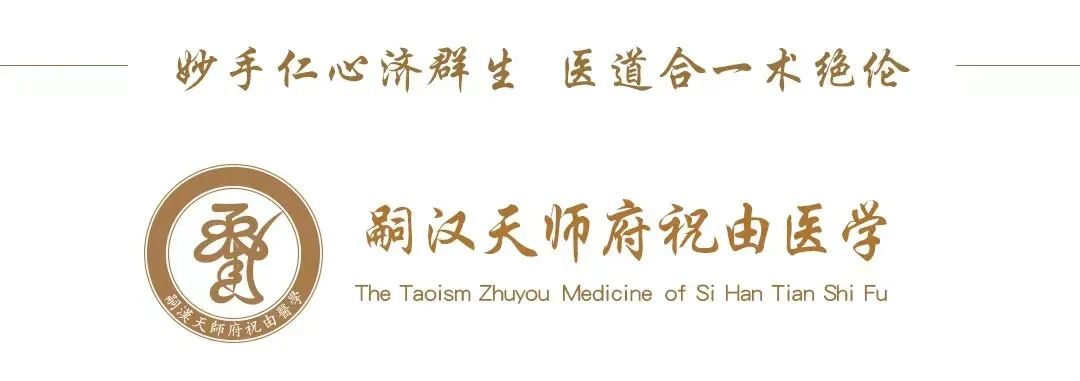
In traditional Chinese health concepts, it is believed that good health practices not only require living in harmony with nature but also emphasize the importance of maintaining emotional well-being. Often, we may indulge in our lifestyle habits occasionally, such as staying up late for a day or two or enjoying barbecued spicy food. If these indulgences are infrequent, they are not considered significant issues and can be quickly corrected if problems arise.
However, emotional disturbances are different. If emotions cannot be kept stable, even an occasional indulgence can lay the groundwork for future health issues. Even if there are no immediate problems, they may lead to serious illnesses later on.
1. Anger Harms the Liver: Feeling Angry Can Cause Liver Qi to Surge
The five emotions affect the corresponding five organs in a specific way: what the organ fears, it will encounter. What does the liver fear? The liver is a rigid organ, and “liver qi and liver yang are often excessive,” meaning that liver qi and liver yang can easily rise and leak. The Suwen states: “Anger causes qi to rise.” There is even a saying, “Anger causes one’s hat to fly off.” Qi rising means that the qi mechanism is reversing. Excessive anger harms the liver, as great or frequent anger can cause the already easily rising liver qi to surge excessively, leading to liver qi rebelling upwards. At this point, symptoms such as headaches, flushed face, chest and rib fullness, and rapid breathing are commonly observed; if qi forces blood to rebel, it can lead to vomiting blood; if qi closes the spirit, it can result in sudden fainting. This is what is meant by “anger harms the liver.” Conversely, if liver qi rises excessively, the person may also become irritable and easily angered. The reason for this is that liver qi is prone to rising and moving; anger causes qi to rise, and they correspond to each other. Diseases caused by anger should be treated primarily by soothing and calming the liver. Soothing the liver can ensure that the liver’s yin and blood are sufficient, allowing liver qi to be contained, thus remaining calm and not rebelling. Even when faced with situations that easily provoke anger, one can express anger without excess and with restraint. Additionally, “the liver likes to be free and dislikes depression”; when liver qi is stagnant, moderate anger can help release the stagnant qi. However, the term “moderate” is easier said than done. When treating liver qi stagnation, the principle is to soothe and soften the liver.

2. Joy Harms the Heart: Happiness is Not Always a Good Thing
Joy is associated with the heart, indicating that the state of the heart is related to the emotion of joy. “When one encounters joyful events, the spirit is uplifted,” which is a manifestation of relaxed heart qi and a pleasant spirit. The Suwen states: “Joy causes qi to be gentle.” Under normal circumstances, joy is a positive stimulus that can alleviate tension, harmonize qi and blood, and promote the smooth flow of defensive and nutritive qi. Thus, the Suwen further states: “Joy causes qi to be harmonious, and the nutritive and defensive qi to flow smoothly.” This is the first interpretation of “joy causes qi to be gentle.”
However, “gentle qi” has a dual meaning of both “softening” and “dissipating.” Therefore, the second interpretation of “joy causes qi to be gentle” is dissipating. Once joy exceeds moderation, excessive joy can cause the heart qi to become slack and dissipate, leading to a wandering spirit and a lack of focus. Mild cases may result in restlessness, fatigue, palpitations, insomnia, and lack of concentration. Severe cases can lead to loss of consciousness, incoherence, abnormal behavior, and mania. This is the pathological explanation of “joy causes qi to be gentle.” Generally, most manifestations of scattered heart qi are not severe; they often occur during unexpected joyful events or overwhelming happiness, resulting in temporary loss of composure, such as incoherence or awkward behavior, but quickly return to normal without the need for treatment. The Yixue summarizes this physiological and pathological phenomenon: “Joy causes qi to be gentle; harmonious and smooth qi is not a disease. However, excessive joy causes the spirit to scatter and not be contained, leading to endless laughter and inability to restrain emotions, and in severe cases, to mania.” If the condition is slightly more severe, treatment should focus on tonifying heart qi and calming the spirit while also gathering the spirit.
3. Worry Harms the Spleen: Mental Burdens Deplete Spleen Qi and Blood
Worry refers to anxiety and contemplation. The Lingshu states: “To think is to change due to emotions.” It is part of the cognitive process led by the heart and consciousness.
The activity of thought is connected to the “spleen storing intention.” If the spleen is deficient in qi and blood and cannot nourish the spirit, its function of storing intention and thought cannot be performed normally. The Jishengfang states: “Those who are forgetful often forget because they are too preoccupied. The spleen governs intention and thought, and the heart also governs thought. Excessive worry leads to a lack of clarity in intention, and the spirit cannot function properly, resulting in forgetfulness. The treatment should focus on regulating the spleen to ensure the spirit is calm and clear, thus allowing thought to be regained.” Clinically, methods to treat forgetfulness, lack of concentration, and sluggish thinking often include tonifying the spleen, boosting qi, nourishing blood, and calming the spirit, or using formulas to tonify the middle and boost qi. The spleen governs transformation and transportation; when it is functioning well, the Suwen states: “Worry causes qi to stagnate.” This means that when one worries excessively or when thoughts do not go as desired, qi stagnates in the spleen. In such cases, the spleen desires to move but cannot, desires to transport but fails to do so, leading to abnormal rising and falling and disordered intake and transport. We have all likely experienced this, with common manifestations being a lack of appetite, abdominal distension, loose stools, fatigue, and weakness. How should this be treated? The focus should be on tonifying the spleen and promoting qi movement.

4. Fear Harms the Kidneys: Fear Can Lead to Incontinence
Fear is a negative emotional activity characterized by anxiety and fright, originating from the heart and affecting the kidneys. The Suwen states: “In the organs, it is the kidneys… in emotions, it is fear.” The Suwen also states: “Fear causes qi to descend.” Qi descending means that qi leaks downward. The characteristic of the five emotions affecting the five organs is that each organ fears certain emotions. What does the kidney fear? The kidneys store essence and are located in the lower jiao, where storage is essential. The function of the kidneys is to transform essence into kidney qi, which rises and disperses throughout the body via the three jiaos, stimulating the physiological functions of various organs. However, “fear causes qi to descend”; in a state of fear, the essence and qi in the kidneys leak downward. In mild cases, this may result in weakness in the legs; in severe cases, it can lead to incontinence, nocturnal emissions, or spermatorrhea. Not only does the kidney’s essence and qi fail to be stored or distributed normally, but it also leaks out, significantly impacting kidney function, hence the saying “fear harms the kidneys.” Who is prone to fear? Since the emotional activity of fear primarily relies on the essence and qi of the kidneys, those with sufficient kidney essence and stable storage will not be overly affected by fear. Conversely, if kidney essence is deficient and storage is inherently unstable, even slight stimuli can easily provoke fear and anxiety, leading to symptoms of qi leakage. The treatment for fear-related conditions should focus on tonifying the kidneys, securing essence, and calming the spirit.
5. The Lungs Govern Sadness: Sadness Continuously Depletes Vital Energy
“The lungs govern worry and sadness”; simply put, the lungs are responsible for human emotions of worry and sadness. Worry and sadness have a significant impact on the body, continuously depleting qi, hence the phrase “sadness depletes qi.”
The Neijing states: “Sadness belongs to the lungs, and the emotion of the lungs is sadness.” It also states: “When essence and qi are concentrated in the lungs, sadness arises; thus, those who weep are governed by the lungs.” It further states: “Sadness depletes qi.” Excessive sorrow can harm lung qi, leading to diminished vitality and a depressed spirit. In Dream of the Red Chamber, Cao Xueqin vividly depicts the effects of sadness on the lungs through the character Lin Daiyu, who weeps in the autumn chill, cries at falling flowers, and weeps at the sound of cold rain. Her already weak body, compounded by years of sorrow, ultimately leads to her untimely demise due to a lingering cough.
Sadness and worry can cause lung qi to become depressed, leading to long-term depletion of qi and damage to yin, making one more susceptible to colds, and can also result in symptoms such as dry cough, shortness of breath, hemoptysis, hoarseness, and changes in respiratory rate. Worry can also lead to increased facial wrinkles and a haggard appearance. Many skin diseases, such as urticaria, alopecia areata, and psoriasis, which are related to emotional factors, are also associated with this. The five organs can be viewed as a whole; if one part has abnormalities or issues and is not addressed promptly, it may lead to problems in other organs. Among the five organs, the heart, liver, and spleen are particularly closely related to emotional activities. The heart governs blood and houses the spirit, the liver governs the smooth flow of emotions, and the spleen governs transformation and transportation, serving as the pivot for the rise and fall of qi. Therefore, diseases caused by emotional disturbances are most commonly seen in the heart, liver, and spleen. Among these, the heart is the primary organ of the five organs, and emotional disorders often significantly damage the heart and spirit, as the saying goes, “When the heart moves, all the organs are affected.”
In daily life, it is essential to maintain emotional stability, avoiding extreme joy, sorrow, fear, or anger. While external treatments and medications can address diseases caused by emotional disturbances, true resolution begins with adjusting the heart, gradually cultivating the mind and nurturing the spleen’s nature.
Text organized by Hua Su

Click to view past feedback on Tianshi Fu’s Blessing Medicine Click to view the 2023 registration notice for Tianshi Fu’s Blessing Medicine

